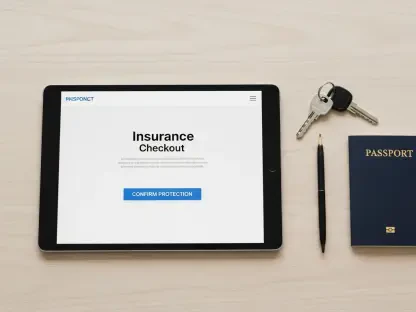The unsettling rise of staged car accidents in Florida represents a growing menace affecting drivers statewide, particularly in bustling urban centers like Tampa. A case involving a woman, colloquially referred to as Snooks, who believes she narrowly avoided an insurance scam, sheds light on this pervasive issue. Snooks documented her troubling experience on social media, where the video garnered significant attention, highlighting the public’s growing awareness and concern over fraudulent activities on the road. This incident is emblematic of a broader trend in Florida, known for its sky-high rates of vehicle insurance fraud. Fraudulent incidents like staged accidents not only imperil unwary drivers’ lives but also inflate insurance premium costs. As the dialogue surrounding Snooks’s experience unfolds on platforms like TikTok, it becomes evident that public discourse is a critical component in combating these insidious schemes. Her video, gaining over 708,000 views, underscores the collective anxiety shared by drivers, urging a deeper examination of the tactics used in these scams and the ways drivers can protect themselves.
Tactics and Techniques of Fraudsters
Florida’s highways and byways have become fertile ground for scammers who deploy an array of tactics designed to trap unsuspecting motorists in staged accidents. These brazen fraudsters often employ cunning techniques such as the “swoop and stop” maneuver, where a scam vehicle abruptly cuts in front of a target car in traffic, causing a collision. Similarly, brake-checking, where a scammer in front suddenly stops, is another common ploy. A characteristic of these fraudulent acts is their design to exploit the assumption of liability typically imposed on the driver trailing behind. The Department of Motor Vehicles (DMV) and other institutions have been pivotal in identifying such ruses, urging drivers to be vigilant in documenting the details of any suspicious encounter. Official guidelines emphasize engaging insurance companies and law enforcement instead of settling disputes privately.
Such fraudulent ploys not only manipulate legal presumptions and insurance practices but also exacerbate a state’s motor insurance landscape, inflating premiums for law-abiding drivers. Florida, often dubbed “Scam Central,” has witnessed a deluge of fraud reports, boasting astonishingly high numbers that reflect a systemic challenge. The outcomes have been financially dire: fraudulent claims hike up annual insurance costs, with drivers potentially paying hundreds more just to remain insured. Florida’s notoriety for such scams is only paralleled by states like New York and California, where density and diverse traffic lend themselves to similar fraudulent opportunities. By scrutinizing these schemes, drivers remain informed and empowered, proactive rather than reactive in their road safety approach.
Societal and Economic Repercussions
The societal implications of staged accidents stretch far beyond individual losses, reflecting a larger tapestry of fraudulent activity that burdens the entire community. False claims wreak economic havoc, with the insurance industry bearing the brunt of extra expenditures, reaching a staggering estimate of $20 billion annually. Within Florida, staged accidents often involve collaborative networks comprising unscrupulous medical practitioners and attorneys eager to exploit the system’s vulnerabilities. This web of deceit propagates further shame and strain on authentic professional entities and tarnishes the integrity of the insurance field. Those embroiled in such schemes often leverage their positions to push false narratives, diluting the process of justice and exerting pressure on legal proceedings.
Floridian drivers, represented in Snooks’s documented experience, showcase an acute awareness and shared discontent with these fraudulent practices, revealing a public desperately seeking avenues of protection. Conversations punctuating social avenues like TikTok amplify a call for countermeasures, with suggestions emphasizing technology as a frontline defense. The prevalence of dashboard cameras emerges as a favored deterrent, offering invaluable evidence to contest illegitimate claims. Such devices stand as a testament to modern ingenuity, equipping drivers with a crucial tool to not only document an incident but also establish clarity and truth in otherwise murky scenarios heavily manipulated by deceptive actors.
Preventive Measures and Broader Implications
Awareness and preparedness form the backbone of combating the staged accident epidemic, necessitating robust efforts from both individuals and institutions to confront this challenge. Drivers are encouraged to become more tech-savvy, utilizing tools such as dashcams and mobile applications designed to record pertinent data during incidents. By fostering an environment of informed driving, individuals can better insulate themselves against being unwitting targets. The personal testimonies surrounding Snooks’s situation underscore the resonance of promoting community engagement and education regarding the types of scams prevalent on state roads.
Regulatory bodies and law enforcement bear the mantle of addressing this scourge more systemically, delving deeper into the structural issues that fuel these fraudulent activities. There’s a need for stringent punitive measures against those perpetrating scams and supportive avenues for victims to report without fear of reprisal. Encouraging interaction and collaboration with legal and insurance entities permits the establishment of comprehensive databases and exchanges of valuable information, essential for tracing fraud trends and implementing effective deterrents. The urgency with which these measures are adopted influences not only the life span of such practices but also the spirit of trust crucial to infrastructural harmony.
Looking Ahead: Toward Safer Roads
The rise of staged car accidents in Florida poses a serious threat to drivers across the state, especially in busy cities like Tampa. One noteworthy incident involved a woman called Snooks, who suspected she nearly fell victim to an insurance scam. Her story, shared on social media, has drawn significant attention, revealing the public’s growing awareness and concern about these fraudulent activities. Florida is notorious for its high vehicle insurance fraud rates, and such staged accidents not only endanger unsuspecting drivers but also lead to higher insurance premiums. Snooks’s experience, discussed on platforms like TikTok, shows that public conversation is vital in fighting these scams. Her video, which amassed over 708,000 views, highlights the anxiety shared by many drivers and calls for a closer look at the deceptive methods used in these scams and ways for drivers to protect themselves. This collective concern underscores the need for preventative measures and widespread awareness to combat this pressing issue effectively.









